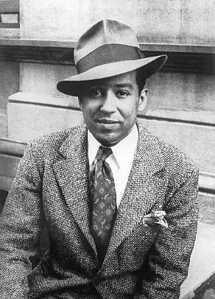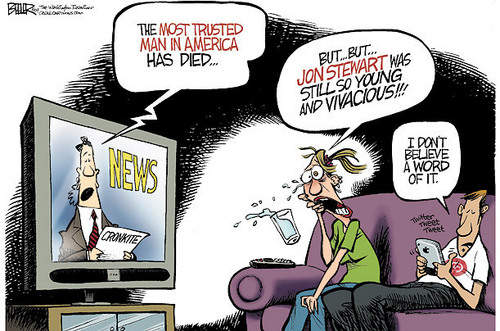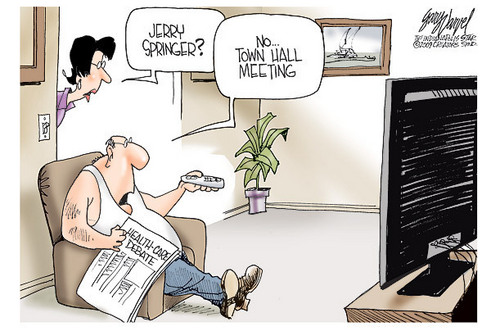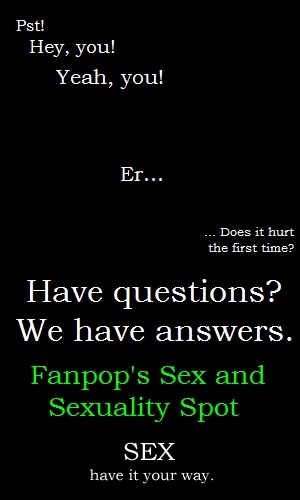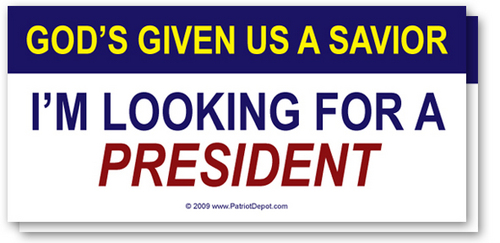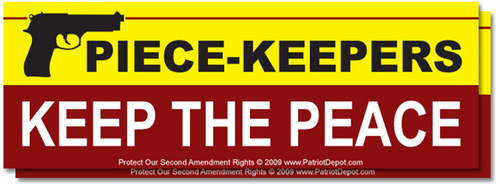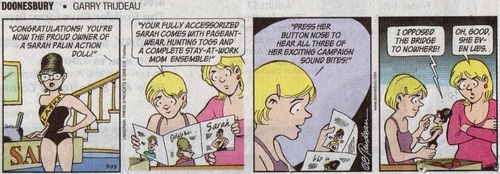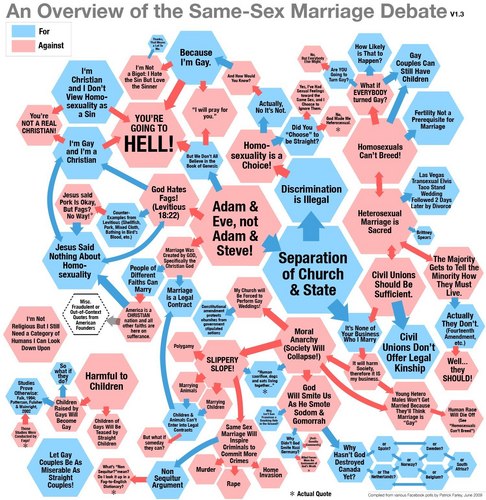Let America Be America Again da Langston Hughes
Let America be America again.
Let it be the dream it used to be.
Let it be the pioneer on the plain
Seeking a home where he himself is free.
(America never was America to me.)
Let America be the dream the dreamers dreamed--
Let it be that great strong land of love
Where never kings connive nor tyrants scheme
That any man be crushed da one above.
(It never was America to me.)
O, let my land be a land where Liberty
Is crowned with no false patriotic wreath,
But opportunity is real, and life is free,
Equality is in the air we breathe.
(There's never been equality for me,
Nor freedom in this "homeland of the free.")
Say, who are te that mumbles in the dark?
And who are te that draws your veil across the stars?
I am the poor white, fooled and pushed apart,
I am the Negro bearing slavery's scars.
I am the red man driven from the land,
I am the immigrant clutching the hope I seek--
And finding only the same old stupid plan
Of dog eat dog, of mighty crush the weak.
I am the young man, full of strength and hope,
Rapunzel - L'intreccio della torre in that ancient endless chain
Of profit, power, gain, of grab the land!
Of grab the gold! Of grab the ways of satisfying need!
Of work the men! Of take the pay!
Of owning everything for one's own greed!
I am the farmer, bondsman to the soil.
I am the worker sold to the machine.
I am the Negro, servant to te all.
I am the people, humble, hungry, mean--
Hungry yet today despite the dream.
Beaten yet today--O, Pioneers!
I am the man who never got ahead,
The poorest worker bartered through the years.
Yet I'm the one who dreamt our basic dream
In the Old World while still a serf of kings,
Who dreamt a dream so strong, so brave, so true,
That even yet its mighty daring sings
In every brick and stone, in every furrow turned
That's made America the land it has become.
O, I'm the man who sailed those early seas
In cerca of what I meant to be my home--
For I'm the one who left dark Ireland's shore,
And Poland's plain, and England's grassy lea,
And torn from Black Africa's strand I came
To build a "homeland of the free."
The free?
Who detto the free? Not me?
Surely not me? The millions on relief today?
The millions shot down when we strike?
The millions who have nothing for our pay?
For all the dreams we've dreamed
And all the songs we've sung
And all the hopes we've held
And all the flags we've hung,
The millions who have nothing for our pay--
Except the dream that's almost dead today.
O, let America be America again--
The land that never has been yet--
And yet must be--the land where every man is free.
The land that's mine--the poor man's, Indian's, Negro's, ME--
Who made America,
Whose sweat and blood, whose faith and pain,
Whose hand at the foundry, whose plow in the rain,
Must bring back our mighty dream again.
Sure, call me any ugly name te choose--
The steel of freedom does not stain.
From those who live like leeches on the people's lives,
We must take back our land again,
America!
O, yes,
I say it plain,
America never was America to me,
And yet I swear this oath--
America will be!
Out of the rack and ruin of our gangster death,
The rape and rot of graft, and stealth, and lies,
We, the people, must redeem
The land, the mines, the plants, the rivers.
The mountains and the endless plain--
All, all the stretch of these great green states--
And make America again!
---
Why have I chosen to share this poem with this spot?
I believe poesia is an art form falling out of favor with the masses and want to expose as many people to it as possible. That fact aside, I also believe that this point is still relevant to society today. Langston Hughes is famous, even among those who do not often read poetry, for his revolutionary ideas and his incendiary (at the time) poetry.
But how much has America changed since Hughes' time? Is America "America" yet, as Hughes promised us at the end of the poem? We have the same ideals that we had seventy-odd years ago, and we seem to have the same double-standards. "Freedom for all" has always only ever come with the footnote, "some restrictions may apply." It seems to me that the dialog in Hughes' poem persists today, the self-described "patriots" singing, "Stand up and fight to preserve our freedom" and the dissenters responding with, "Whose freedom?"
I am generalizing, but White, Christian America seems to believe that everyone who is not White, Christian America is against them, and this includes their fellow dissenting, non-Christian, non-White Americans, and of course, non-Americans. Manifest Destiny has permeated their minds, which is one reason that plenty blindly support the War in Iraq without actually knowing what it's really about.
"What is freedom?" I call, and the response may be, "Freedom is an American right." I might as well have asked "What is an apple?" and receive the response, "An mela, apple a giorno keeps the doctor away." Spouting propagandistic phrases does not answer the question.
What is freedom?
That, in itself, is a domanda reserved for another articolo (coming soon). But it is an important domanda to ask oneself.
So what do te think of Hughes poem? The call to "Let America Be America" again. The poem clearly depicts two perspectives on America. I guess my domanda is, as a twenty-first century reader of a twentieth century poem, which voice to you relate to more?
Let America be America again.
Let it be the dream it used to be.
Let it be the pioneer on the plain
Seeking a home where he himself is free.
(America never was America to me.)
Let America be the dream the dreamers dreamed--
Let it be that great strong land of love
Where never kings connive nor tyrants scheme
That any man be crushed da one above.
(It never was America to me.)
O, let my land be a land where Liberty
Is crowned with no false patriotic wreath,
But opportunity is real, and life is free,
Equality is in the air we breathe.
(There's never been equality for me,
Nor freedom in this "homeland of the free.")
Say, who are te that mumbles in the dark?
And who are te that draws your veil across the stars?
I am the poor white, fooled and pushed apart,
I am the Negro bearing slavery's scars.
I am the red man driven from the land,
I am the immigrant clutching the hope I seek--
And finding only the same old stupid plan
Of dog eat dog, of mighty crush the weak.
I am the young man, full of strength and hope,
Rapunzel - L'intreccio della torre in that ancient endless chain
Of profit, power, gain, of grab the land!
Of grab the gold! Of grab the ways of satisfying need!
Of work the men! Of take the pay!
Of owning everything for one's own greed!
I am the farmer, bondsman to the soil.
I am the worker sold to the machine.
I am the Negro, servant to te all.
I am the people, humble, hungry, mean--
Hungry yet today despite the dream.
Beaten yet today--O, Pioneers!
I am the man who never got ahead,
The poorest worker bartered through the years.
Yet I'm the one who dreamt our basic dream
In the Old World while still a serf of kings,
Who dreamt a dream so strong, so brave, so true,
That even yet its mighty daring sings
In every brick and stone, in every furrow turned
That's made America the land it has become.
O, I'm the man who sailed those early seas
In cerca of what I meant to be my home--
For I'm the one who left dark Ireland's shore,
And Poland's plain, and England's grassy lea,
And torn from Black Africa's strand I came
To build a "homeland of the free."
The free?
Who detto the free? Not me?
Surely not me? The millions on relief today?
The millions shot down when we strike?
The millions who have nothing for our pay?
For all the dreams we've dreamed
And all the songs we've sung
And all the hopes we've held
And all the flags we've hung,
The millions who have nothing for our pay--
Except the dream that's almost dead today.
O, let America be America again--
The land that never has been yet--
And yet must be--the land where every man is free.
The land that's mine--the poor man's, Indian's, Negro's, ME--
Who made America,
Whose sweat and blood, whose faith and pain,
Whose hand at the foundry, whose plow in the rain,
Must bring back our mighty dream again.
Sure, call me any ugly name te choose--
The steel of freedom does not stain.
From those who live like leeches on the people's lives,
We must take back our land again,
America!
O, yes,
I say it plain,
America never was America to me,
And yet I swear this oath--
America will be!
Out of the rack and ruin of our gangster death,
The rape and rot of graft, and stealth, and lies,
We, the people, must redeem
The land, the mines, the plants, the rivers.
The mountains and the endless plain--
All, all the stretch of these great green states--
And make America again!
---
Why have I chosen to share this poem with this spot?
I believe poesia is an art form falling out of favor with the masses and want to expose as many people to it as possible. That fact aside, I also believe that this point is still relevant to society today. Langston Hughes is famous, even among those who do not often read poetry, for his revolutionary ideas and his incendiary (at the time) poetry.
But how much has America changed since Hughes' time? Is America "America" yet, as Hughes promised us at the end of the poem? We have the same ideals that we had seventy-odd years ago, and we seem to have the same double-standards. "Freedom for all" has always only ever come with the footnote, "some restrictions may apply." It seems to me that the dialog in Hughes' poem persists today, the self-described "patriots" singing, "Stand up and fight to preserve our freedom" and the dissenters responding with, "Whose freedom?"
I am generalizing, but White, Christian America seems to believe that everyone who is not White, Christian America is against them, and this includes their fellow dissenting, non-Christian, non-White Americans, and of course, non-Americans. Manifest Destiny has permeated their minds, which is one reason that plenty blindly support the War in Iraq without actually knowing what it's really about.
"What is freedom?" I call, and the response may be, "Freedom is an American right." I might as well have asked "What is an apple?" and receive the response, "An mela, apple a giorno keeps the doctor away." Spouting propagandistic phrases does not answer the question.
What is freedom?
That, in itself, is a domanda reserved for another articolo (coming soon). But it is an important domanda to ask oneself.
So what do te think of Hughes poem? The call to "Let America Be America" again. The poem clearly depicts two perspectives on America. I guess my domanda is, as a twenty-first century reader of a twentieth century poem, which voice to you relate to more?


